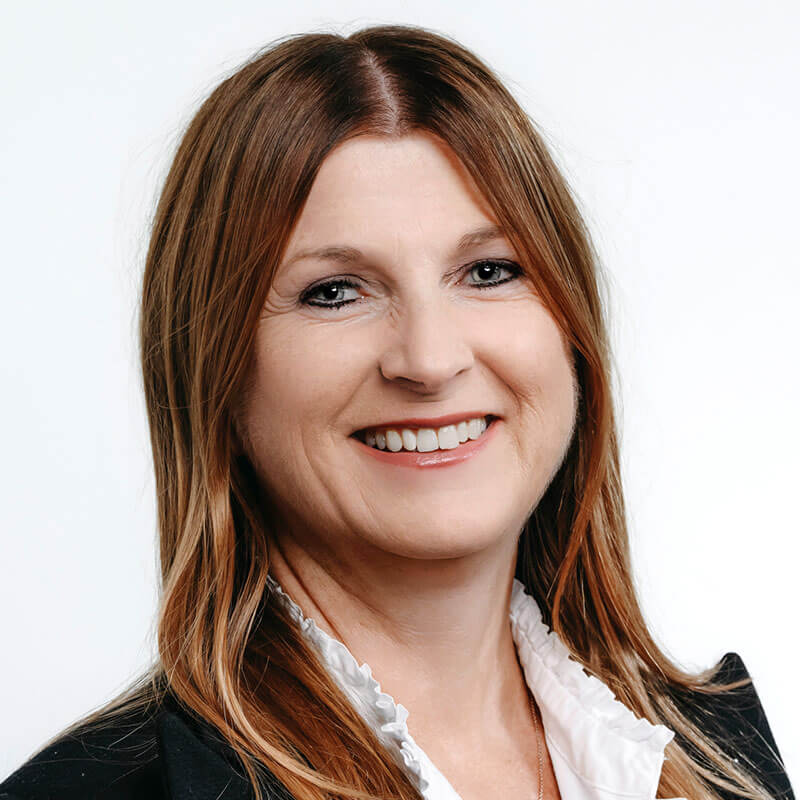Gallup’s recent 2023 ‘State of the Australian and New Zealand Workplace’ report1 validates a long-standing concern of business leaders: our employees are struggling. In fact, according to the data, as many as four in five employees are not thriving at work, costing Australian and New Zealand businesses an estimated AU$245 billion each year.
The post-pandemic workplace is facing more challenges than ever before. ‘Quiet quitting’ and staff churn are just the tip of the iceberg. With mental health issues more widespread than any of us care to acknowledge, how can we better support the one in five adults experiencing mental illness in any given year?2
The 2020 Productivity Commission Inquiry Report into Mental Health3 identified the need to equip workplaces to be mentally healthy. While conversations about safeguarding the psychosocial wellbeing of workers have gained airtime in boardrooms across the country, there is limited evidence to show that traditional EAPs and other workplace initiatives are meeting the needs of employees or employers.
The time has come to shift the needle on workplace mental wellbeing, but it requires a change in perspective. Rather than presuming that our efforts and current solutions suffice, as key decision makers and business leads, we should be challenging ourselves with a different question: ‘How can we do things differently?’

Speak to Cathy about how your business can positively disrupt EAP to provide employees with early mental health support.
Importantly, the role of EAP as a mitigating control in battling psychosocial hazards has become critical. EAPs have become a cornerstone of employer strategies to support employee wellbeing and mental health. However, employers should carefully consider their responsibilities in ensuring the effectiveness of these programs. Recently, a police officer psychologically injured from working on the Royal Commission into Institutional Responses to Child Sexual Abuse has been awarded more than $1.8 million in damages, in a case examining the obligations of employers to oversee their employee assistance programs (EAPs)4.

Silent Struggles: Obstacles preventing adequate employee support
Traditional EAPs have long been a go-to resource, however, with utilisation rates of less than 3%, few employees will realistically reap the benefits of these services.
When it comes to specifically supporting mental wellbeing, our research5 (based on a survey of 203 workers and 205 HR, Health, Safety and Wellbeing Managers across Australia and New Zealand) reveals the web of challenges that employees must navigate, often silently. These hurdles hinder their ability to access the support they need for their mental health and well-being.
Key concerns with traditional EAPs include:
- Awareness of Services
Many employees are unaware that EAPs even exist, let alone know how to access their services. This lack of awareness often results in missed opportunities for early intervention and support. - Stigma and Confidentiality
Admitting a need for emotional or psychological support can be like exposing vulnerability due to the pervasive stigma. The elephant in the room when it comes to EAPs is, despite the normalisation of mental health conversations, this stigma persists. Concerns about the confidentiality of these services add to the unease, as employees worry their personal struggles might not remain confidential. - Limited Sessions and Access
Traditional EAPs typically offer only a few counselling sessions, leaving those in need of ongoing support underserved. - Quality of Therapy
Employees are increasingly concerned about the quality of therapy in EAPs and whether therapists are adequately qualified and experienced to address their specific challenges. - Psychologist Availability
Access to mental health professionals in the community, especially psychologists, remains challenging. A scarcity of psychologists often leads to prolonged wait times, leaving many employees without timely assistance. Figures from the Australian Healthcare Index6 show almost two-thirds of people seeking psychological care had to wait more than 12 weeks to receive it. New Zealand is facing a similar critical shortage, with average wait times of 15 weeks to get an initial mental health appointment7.
Bridging the Gap: How business can bring quality psychological support to their teams
The ripple effect of poor employee mental health means that there are implications for businesses, impacting productivity, absenteeism, and workplace dynamics. Addressing these issues isn’t just a corporate social responsibility but a strategic imperative for employers looking to foster a healthier and more productive work environment. Part of the solution lies in a more accessible and supportive approach to employee mental health.
To create a workplace that champions the mental well-being of its employees, and bridges the gap between traditional EAPs and comprehensive mental health support, employers might embrace two complementary strategies:
1. Cultivating a Culture of Care
Health and safety are values to be embraced, not priorities to be merely managed. Embracing these values involves employers making decisions and taking organisational actions in alignment with them. When actions and decisions are guided by these core values, it fosters a culture of care.
2. Rethinking EAP
In reimagining EAPs, the time has come to shift the focus to prevention. Employees not only need accessible solutions, but also proactive tools designed to identify and intervene in mental health challenges before they escalate.

Thrive: Disrupting EAP, for Good
With over four decades of combined expertise in the NHS and the independent sector, Dr. Adam Huxley, a consultant clinical and forensic psychologist, and Dr. Andres Fonseca, a consultant psychiatrist, grew dissatisfied with the limited effectiveness of conventional services in addressing the United Kingdom’s mental health crisis. Recognising the urgent need for a more impactful solution, they co-founded Thrive Mental Health, pioneering the first scalable response to this critical issue.
In our quest for a solution that could truly make a difference, we found Thrive was a standout due to its health-centric origins, mission-focused philosophy, 10 years of proven results, and its arsenal of evidence-based, clinically validated tools.
Setting it apart from the rest, Thrive offers unlimited access to qualified psychologists – addressing the issue of access and ensuring the use of proven therapeutic modalities. This approach is purpose-built to enhance the mental health and overall well-being of staff by proactively identifying and addressing issues early – before they escalate into crises. A 2020 UK study8 on Thrive Mental Health revealed significantly improved rates of recovery from anxiety and depression within two weeks, four weeks, and six weeks, compared to those without support, with recovery rates of up to 86% for depression and anxiety among Thrive users.
Crucially, Thrive is not limited to employees in distress; it provides engaging content for everyone, serving as a protective factor for the well-being of those seeking support and those already flourishing.
Vitality Works is proud to partner with Thrive Mental Health in a joint venture, as we collectively strive to empower Australian businesses to usher in a new era of employee mental health.
Thrive is here to revitalise and positively disrupt the EAP market and is available today.
……………………………………………………………………………………………………………………………………………………………………………………………………………………………………………………………………
Cathy McDonald is a senior industry leader in workplace health and wellbeing and Executive General Manager of Vitality Works, a leading provider in workplace health, safety and wellbeing solutions.
She’s passionate about working in partnership with clients to build safe, well and engaged workforces, to unlock value for businesses and their people. Safe, well and engaged employees mean happier, healthier, and more productive people – which, in turn, results in value protection (reducing injuries/claims) and value creation (enhanced EVP, culture) for businesses.
Cathy spearheaded the establishment of Vitality Works, over 10 years ago, and provides the strategic leadership in workplace health, safety, and wellbeing to our clients.
Cathy is also a Board Director for Thrive (Mental Health) Oceania as well as Vitality Works NZ Limited in partnership with First Capital Financial Services.
Let’s connect
To find out more about Thrive Mental Health, you can contact Cathy McDonald, Executive General Manager, directly on:
m: +61 414 487 723
e: cathy.mcdonald@vitalityworks.com.au
Sources
[1] https://advise.gallup.com/state-of-australian-newzealand-workplace-report
[2] 4326.0 Australian Bureau of Statistics National Survey of Mental Health and Wellbeing: Summary of Results 2007
[3] Productivity Commission 2020, Mental Health, Report no. 95, Canberra
[5] Decision Design research for Vitality Works, June 2022
[6] Australian Psychological Society. Analysing Australia’s Mental Health Crisis
[7] New Zealand Doctor. Urgent Call for Funding to Address the Severe Shortage of Psychologists in Aotearoa


